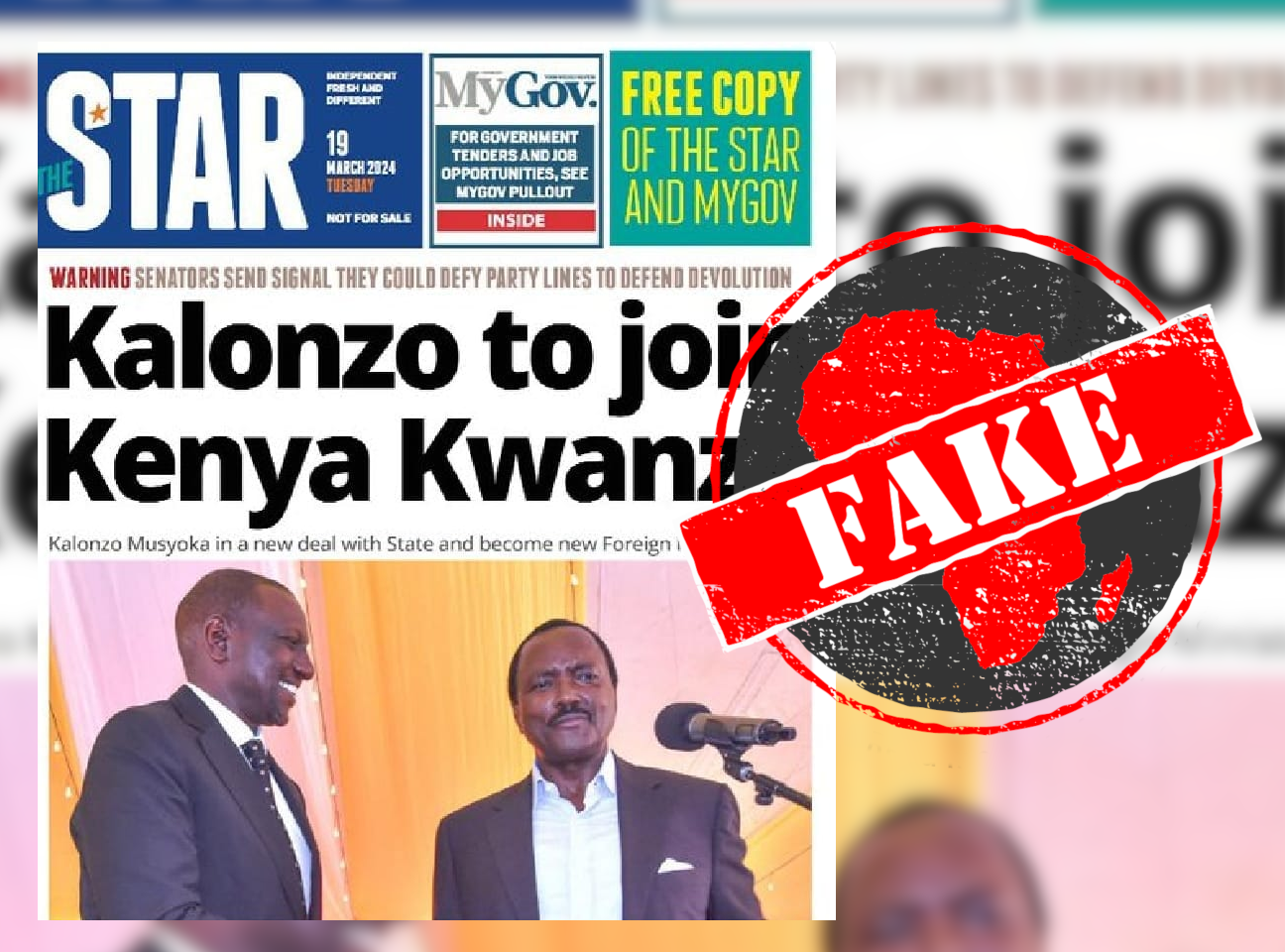IN SHORT: Fake newspaper front pages are nothing new on Kenyan social media platforms. One example, seemingly from the Star newspaper, claims that Kalonzo Musyoka is joining the Kenya Kwanza coalition.
An image of what appears to be the front page of Kenya’s Star newspaper has been posted online with the headline: “Kalonzo to join Kenya Kwanza.”
The front page is dated 19 March 2024 and features a photo of Kenya’s president William Ruto smiling at Wiper party leader Kalonzo Musyoka.
Ruto is the flag bearer of the Kenya Kwanza alliance.
In August 2023 the National Dialogue Committee (Nadco) was established to facilitate talks between the majority and minority parties to ensure consensus. On 8 March 2024, Musyoka was at the statehouse to present the Nadco report to president Ruto.
The allegations that Musyoka will join Kenya Kwanza may be the result of confusion between the Nadco report and a coalition government agreement. Musyoka has adamantly refuted the latter, stating that he does not want a government job and will instead remain in the opposition. Earlier in the year he announced his presidential bid for the 2027 general election.
The front page has also been posted on Facebook and X (formerly Twitter) here, here, here, here, here, here, here and here.
So is this a legitimate front page from the Star newspaper? We checked.

Front page is fake and should be disregarded
We checked the Star's front page archive and found that the 19 March version did not match the front page in circulation. Instead, the headline on the newspaper cover for that day reads: “Why trouble looms for feuding governors, DG [deputy governors].”
Additionally, there has been no credible media coverage of the claim that Musyoka will be joining the Kenya Kwanza alliance, an indication that the information is false.
The front page circulating on social media is fake and should be disregarded.
Republish our content for free
For publishers: what to do if your post is rated false
A fact-checker has rated your Facebook or Instagram post as “false”, “altered”, “partly false” or “missing context”. This could have serious consequences. What do you do?
Click on our guide for the steps you should follow.
Publishers guideAfrica Check teams up with Facebook
Africa Check is a partner in Meta's third-party fact-checking programme to help stop the spread of false information on social media.
The content we rate as “false” will be downgraded on Facebook and Instagram. This means fewer people will see it.
You can also help identify false information on Facebook. This guide explains how.


Add new comment